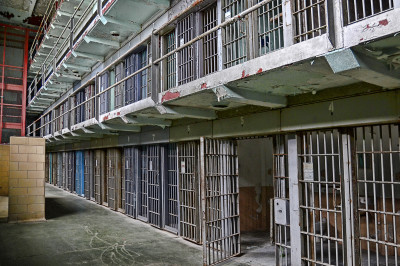
Reforms for the criminal justice system and reducing rates of recidivism will be a focus for the Massachusetts judicial system, Supreme Judicial Court Chief Justice Ralph Gants announced Tuesday in his State of the Judiciary address.
Speaking before the legal community at the Massachusetts Bar Association’s Bench-Bar Symposium, Gants emphasized the need to tailor sentences to the needs of individual defendants and collect and analyze data about incarceration.
“The goal is to ensure that each judge who imposes a sentence has the information needed about the defendant and the crime to determine an appropriate sentence and, where probation is imposed, to determine which conditions will best address the particular needs of the defendant,” Gants said.
The trial court departments that handle criminal cases are in the process of developing best practices for sentencing that are expected to be ready this winter, Gants said.
In order to reduce the chance of former inmates returning to prison, Gants said the Commonwealth should focus on helping people succeed.
“We want probationers to succeed on probation, and we want probation officers focused like a laser beam on the elements that will help probationers succeed: finding a job, getting an education, dealing with drug addiction and mental health problems, ending the cycle of domestic violence,” Gants said.
Gants said he hopes that reshaping the criminal justice system and increasing cost-effectiveness will make Massachusetts a safer state and decrease rates of recidivism.
Trial Court Chief Justice Paula Carey said there are many factors that impact recidivism and, as a result, reform must occur outside of the justice system.
“As a society we face unprecedented challenges in the area of substance abuse, domestic violence and mental health. The challenge of opioid addiction presents a public health crisis we as a court system cannot ignore,” Carey said in a Tuesday press release from the Massachusetts Court System.
Keith Hylton, a professor of the Boston University School of Law, said education for inmates has been proven to lessen recidivism rates.
“There’s one experiment, and I think it’s in San Francisco, where they introduced a charter school into a local jail and they found that by allowing inmates to do additional studying, acquire additional education that the recidivism rates have dropped by substantial amounts,” Hylton said.
Hylton added that inmates also need access to skills that will help them find employment when they are released from prison.
“I suppose the other things are trying to help the prisoners develop job skills while they’re there, so they don’t come out unable to find work,” Hylton said.
Several residents said they support efforts to reduce recidivism rates.
Maria Anderson, 52, of Charlestown, said the state should focus on the underlying problems that lead to imprisonment.
“In general, if you reduce recidivism rates, the rate at which people go back to jail after leaving jail, then just by reducing that you will reduce costs,” she said. “[Reforms should be] drug treatment programs, as opposed to straight incarceration.”
Jonathan Masse, 27, of Back Bay, said criminal justice reforms might not have a substantial impact on the area.
“In Boston, I think the criminal rates are pretty low,” said Masse. “I mean, if you go more towards suburbs like Dorchester and some other places, it’s a bit worse, but I don’t think Boston would be very impacted.”
Leola Angell, 19, a student at Boston University’s College of Arts and Sciences, said she supports the idea of taking action outside of the courtroom and believes the community should be increasing the availability of mental health services.
“[Reform] is very sorely needed,” she said. “I’m a psychology student at the moment and I think one of the biggest problems is actually the mental health part. A lot of people with mental health issues end up in jail, because they have nowhere else to be put really, and it’s important to try to fix that.”




